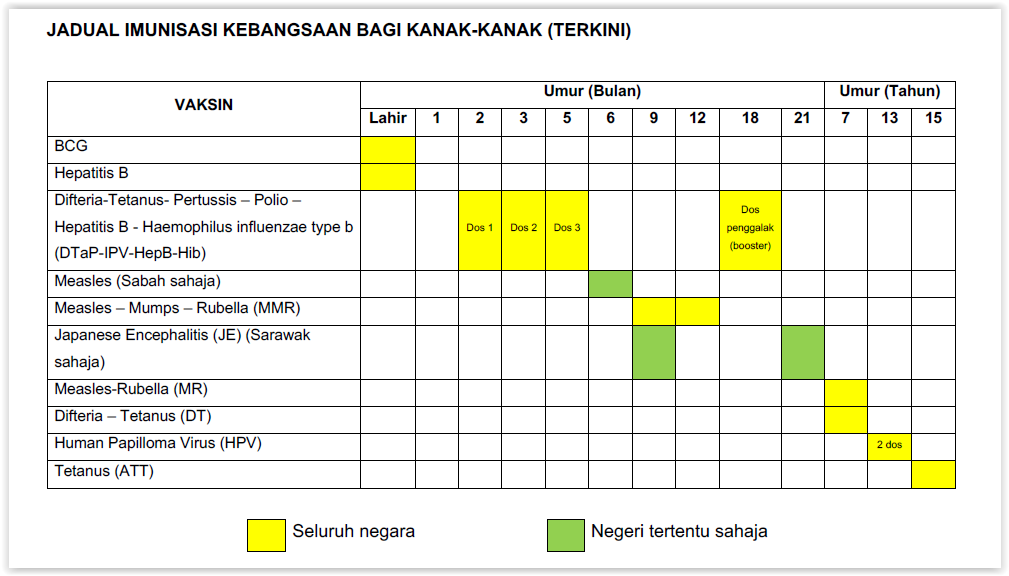KUALA LUMPUR, Nov 17 — The Ministry of Health (MOH) has replaced the pentavalent combination vaccine with the hexavalent combination vaccine in the National Immunisation Schedule for children effective this month.
MOH previously used the pentavalent combination vaccine for diphtheria, tetanus, pertussis, polio, and Haemophilus influenzae type b (DTaP-IPV/Hib) since 2008 in eight states, expanding it nationwide in 2010. The combination vaccine was given in three prime doses at age two months, three months, and five months, with one booster dose at 18 months.
The monovalent Hepatitis B vaccine — which has been provided in MOH facilities since 1989 — used to be given separately to infants in three doses at birth, age one month, and age six months.
Now, MOH will use the hexavalent combination vaccine in the National Immunisation Programme that includes Hepatitis B — protecting against diphtheria, tetanus, pertussis, polio, Hepatitis B, and Haemophilus influenzae type b (DTaP-IPV-HepB-Hib) — where four doses will be given to children at age two months, three months, five months, and 18 months. (The shot at age 18 months is a booster dose).
The Hepatitis B vaccine will still be given to children at birth, but doses at age one and six months will no longer be given since the Hepatitis B component vaccine has been included in the hexavalent combination vaccine.
“This change will be implemented in stages as early as November 2020, depending on vaccine supplies in MOH health facilities,” Health director-general Dr Noor Hisham Abdullah said in a statement today.
He explained that the new National Immunisation Schedule with the hexavalent combination vaccine to prevent six diseases — diphtheria, tetanus, pertussis (whooping cough), polio, Hepatitis B, and Haemophilus influenzae type b — has reduced the number of shots required from seven to five.
“The reduction in the number of injections will enable parents to ensure that their children receive vaccination according to the set immunisation schedule.”
The Health DG noted that 49 countries have already switched to the hexavalent combination vaccine in their respective national immunisation programmes for children.
He also assured the general public that the hexavalent combination vaccine was safe and effective, without any serious safety issues reported since its use in private health facilities in the country.
“Although the hexavalent combination vaccine has been used in private health facilities in Malaysia since 2013 and is proven safe, it is still a new vaccine under the National Immunisation Programme at MOH health facilities.
“Therefore, MOH will monitor adverse events following immunisation for each child after each injection. For this purpose, parents must report any adverse effect experienced by their child to health staff after each injection by returning the report form, even if the effects are mild, like redness at the injection site.”
Dr Noor Hisham also urged parents to continue visiting public health facilities when their child turns one month and six months’ old, in order to monitor their child’s growth and development as stated in their Baby and Child’s Health Record Book (0 to 6 years), even though the new National Immunisation Schedule no longer lists vaccination at age one and six months.
The public can direct queries about the change of the pentavalent to hexavalent combination vaccine to MOH at 03-8883 4042/ 03-8883 4504 from Monday to Friday, 9am to 5pm, or visit the nearest public health clinic (Klinik Kesihatan) for further information.








